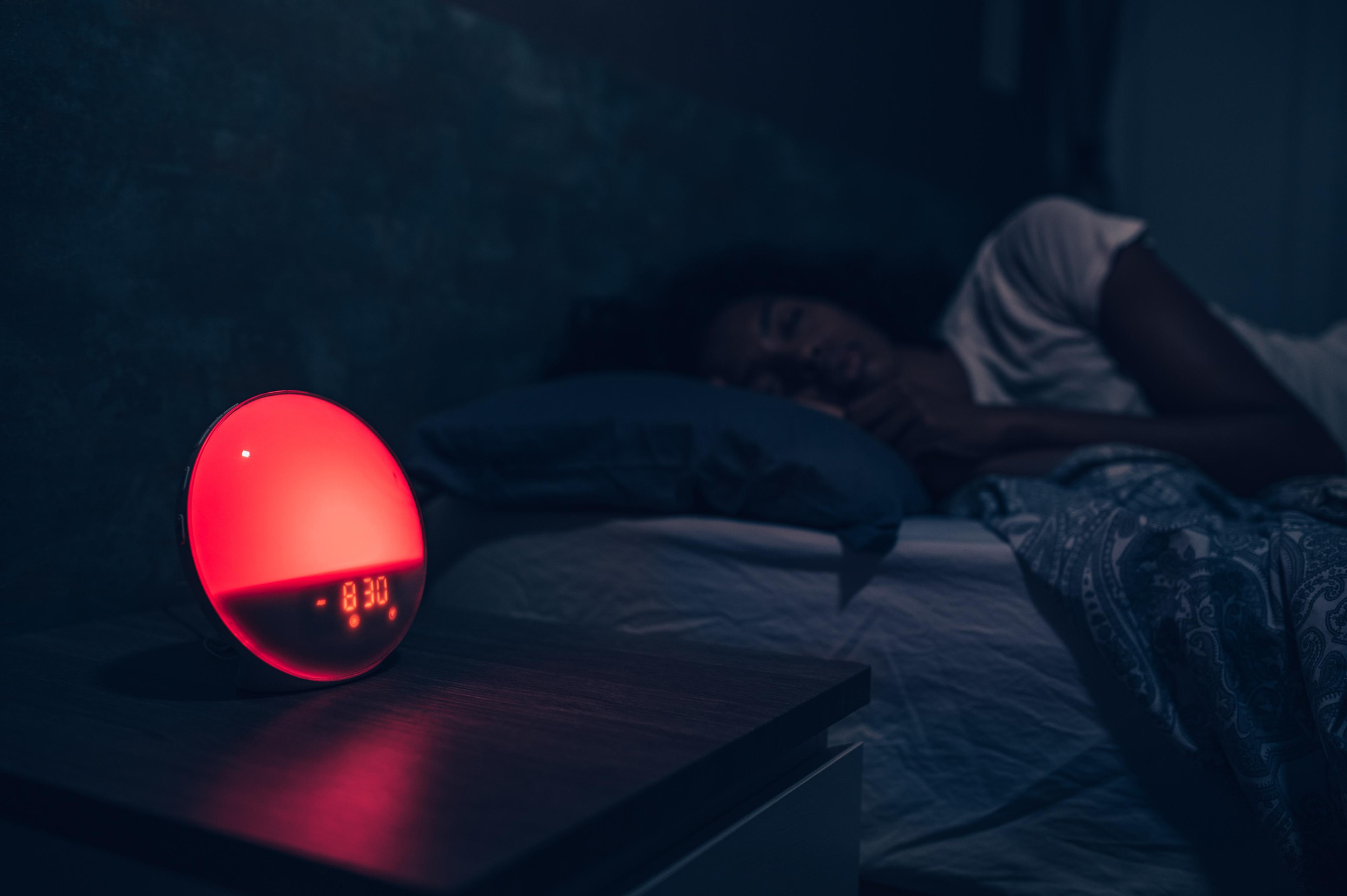What Color Light is Best for Sleep?

Jake Newby
| 3 min read
Jake Newby is a brand journalist for Blue Cross Blue...


Medically reviewed by Gregory Scherle, M.D.
Sleeping in a dark room is optimal, but if you’re the type of person that prefers some source of light in the bedroom as you fall asleep, there is such thing as “good light” and “bad light.”
This guide can help you make an informed decision on which color light helps you sleep.
Why shouldn’t you keep a light on at night?
Light plays a role in regulating the body’s circadian rhythm, also known as our internal clock. Light exposure lets us know when it’s time to be alert and when it’s time to rest. Exposing ourselves to light when there shouldn’t typically be light can disrupt that internal clock.
Darkness on the other hand, stimulates the brain’s pineal gland to produce melatonin – our body’s natural sleep-regulating hormone – and promote sleepiness. Light exposure blocks melatonin production provides another barrier between us and sound sleep.
Both natural and unnatural sources of light influence circadian rhythm. If you sometimes struggle to sleep at night, it may be because there is too much light in your bedroom or you spent your last waking hours staring at devices that emit artificial light, such as cell phones, laptops and TVs. A 2022 study suggested blue light can decrease a person’s sleep quality and sleep duration.
What color light is best for sleep?
Natural and artificial blue light can boost alertness and mental sharpness, according to Web MD, which helps explain why it can be counterintuitive to expose ourselves to blue light as we try to fall asleep. Regularly staring at blue light at night can convince the body it is still daytime.
Red light is less likely to shift circadian rhythm and suppress the secretion of melatonin, according to Harvard Health. Warm light that resembles a setting sun may help signal to the brain that it’s time for sleep, according to the Sleep Foundation. Shades of amber, red and orange light stimulate the brain less than blue light.
Sleeping in a dark room free of any light is still the best option, but if you do use a light that emits these shades of amber, red or orange light, keep them far away from your bed.
Why you should dim your lights at night
Relying on dim light instead of bright light in the evening can lead to coordinated realignment of circadian rhythms, sleep and short-term memory, according to research by the Proceedings of the National Academy of Sciences (PNAS).
If you have bright overhead lights in your bedroom, consider switching to dim ambient lighting in the hours before bedtime that are closer to red than blue. Additionally, boosting your sleep hygiene can do wonders for sleep quality, which in turn does wonders for your overall health. These lifestyle tweaks can help:
- Avoid alcohol and caffeine several hours before bed.
- Avoid screen time one to two hours before bed.
- Get regular exercise during the day to regulate energy levels.
- Go to bed and wake up at the same time each night, even on weekends.
- Make sure your bedroom is cool and noise-free.
Related:
Photo credit: Getty Images





